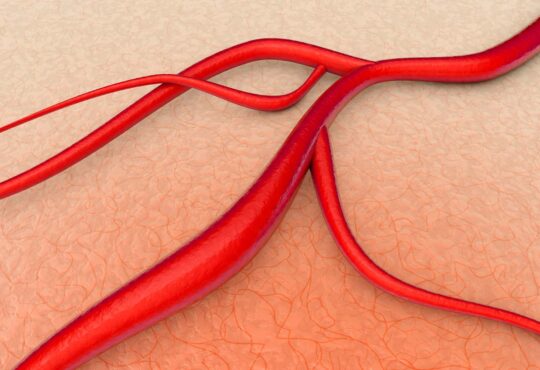The Most Effective Longevity Elixir – With an Embarrassing Name

It works by cleaning your body so it shines and sparkles like a kitchen sink in an old-time TV commercial for a cleanser product.
When it’s thoroughly buffed, scraped, and wiped, your body functions better – and you live longer.
It’s spermidine.
Where did the Name Come From
Spermidine was first isolated in semen.
Later, scientists discovered it’s actually present throughout your body, but they kept the original name.
Our levels of spermidine decline with age. By age 50, it’s down 50%.
What is Spermidine
What’s really important is what spermidine DOES.
Yes, it’s an aliphatic polyamine – and that doesn’t mean anything to most of us.
What’s important is how critical spermidine is to managing and regulating many of the biological processes our health and lives depend on.
Spermidine works at the intermediate level. It’s not a vitamin, but how much we have does affect our health, using some of the key functions our cells carry out at their level:
Yet not many health gurus talk about:
* Maintaining membrane potential
* Controlling intracellular pH and volume
* Regulating Ca2+ influx by glutamatergic N-methyl-D-aspartate receptor (NMDA receptor)
* Increasing specificity and reproducibility of Taq-mediated PCR
But those are the kinds of foundational biological processes we need our cells and enzymes to constantly carry out at an optimal level to maintain great health and to live as long as possible.
Spermidine’s Benefits
1. Promotes autophagy
This is probably its most important function, at least in terms of extending health span and lifespan.
Autophagy is the process where your cells “clean up” biological waste material. That includes dead cells, protein fragments, misfolded proteins, and other biological debris.
Right now, your cells are producing around 10,000 proteins – and at any time they can become misfolded or otherwise damaged. When it accumulates, this bio-garbage also stresses out and damages your cells with free radicals.
When your body doesn’t carry out autophagy for a short while, your body is like a kitchen sink piled full of dirty dishes. And don’t even look at the overflowing wastebasket or the fast food wrappers and containers scattered around the living room.
When you go years without optimal autophagy, on the inside your body looks like the houses of people with hoarding disorder. The living room is a junky maze of stacks of newspapers and magazines, with clouds of dust and dried insects.
Yet your cells and your organs simply cannot function properly when they’re all gunked up like the engine of a ’57 Chevy pickup.
Therefore, we need to promote more autophagy so our biological cleaning up keeps pace with our metabolisms. That’s what polishes, repairs, salvages proteins for spare parts, and recycles all remaining waste until we’re biologically spic and span.
In mice, boosting autophagy by itself increases lifespan by 12%.
2. Reduces inflammation
3. Regulates your metabolic energy production
4. Controls growth and death of cells
5. Improves cognitive function – at least, in rat trials. Spermidine improves health of mitochondria, the powerhouses of your cells. This slows down neurodegeneration.
Better mitochondrial function = more energy.
More energy = better cell and organ function.
Better cell and organ function = better health and long life.
6. Lowers blood pressure.
7. Elongates your hair shaft, lengthening hair growth.
8. Reduces cardiovascular and cancer-related mortality
It also seems to promote fertility. Fertile men have more spermidine than infertile men.
Spermidine for Anti-Aging:
At least two studies have compared the normal food intake of people. It found that people who ate more spermidine had lower risk of both heart disease and cancer.
Scientists have concluded that consumption of spermidine constitutes an independent prognostic parameter for lower mortality from all major causes. (That is: the more spermidine you eat, the more likely you are to stay alive.)
In mice, it has improved heart health and lengthened their lives.
We also know spermidine has lengthened the lifespan of laboratory animals, including yeast, nematodes, mice and flies.
Spermidine acts as a “mimetic” of caloric restriction and fasting. Caloric restriction – eating only the calories you need to survive – is the only thing proven to lengthen lifespan in animals.
Many people are now trying to extend their lives by eating only the bare minimum. But CR has an obvious disadvantage: hunger. Constant hunger.
Humans 100+ years old also maintain higher than average levels of spermidine.
Researchers maintain a database of over 1,000 substances known to decrease aging. Of all those with the least side effects, spermidine is the most powerful.
The One Animal that Maintains High Levels of Spermidine Throughout Its Life
That’s the naked mole rat. They’re “non-aging mammals” because they maintain high levels of spermidine for as long as they remain alive.
That’s apparently why they display almost no signs of aging or reduced function and poor health even when they’re over 20 years old.
According to one of the epidemiological studies, people who consumed more than 12 mg of spermidine every day were the biological equivalent of 5.7 years younger than people (of the same age) who ate less than 9 mg.
The optimal amount, based on what we know right now, is 20 mg of spermidine per day.
That is independent of diet and exercise.
Foods Rich in Spermidine
They include:
* Wheat germ – which is part of all whole wheat and anything made from it
* Soybeans in various forms, including tempeh
* Other beans
* Cheddar cheese (one+ year old)
* Mushrooms
* Rice bran
* Green peas
* Mangoes
* Cooked broccoli
* Chickpeas and other legumes
* Corn
The bacteria in our gut microbiomes also synthesize polyamines, including spermidine.
Supplements of Spermidine?
Everybody wants to live forever, yet “everybody” expects to do so by taking pills without changing their diet or (lack of) exercise.
Spermidine supplements are available, but there’s no proof they actually raise spermidine levels in people.
It’s your money, so spend it as you wish – but make sure you eat plenty of whole grains, beans, and soy.
https://www.youtube.com/watch?v=j011Su4gsqw
https://www.youtube.com/watch?v=dVvqGAjg_J8
https://www.youtube.com/watch?v=AOvV9m7feKo
https://en.wikipedia.org/wiki/Spermidine
https://www.ncbi.nlm.nih.gov/pmc/articles/PMC6128428/







